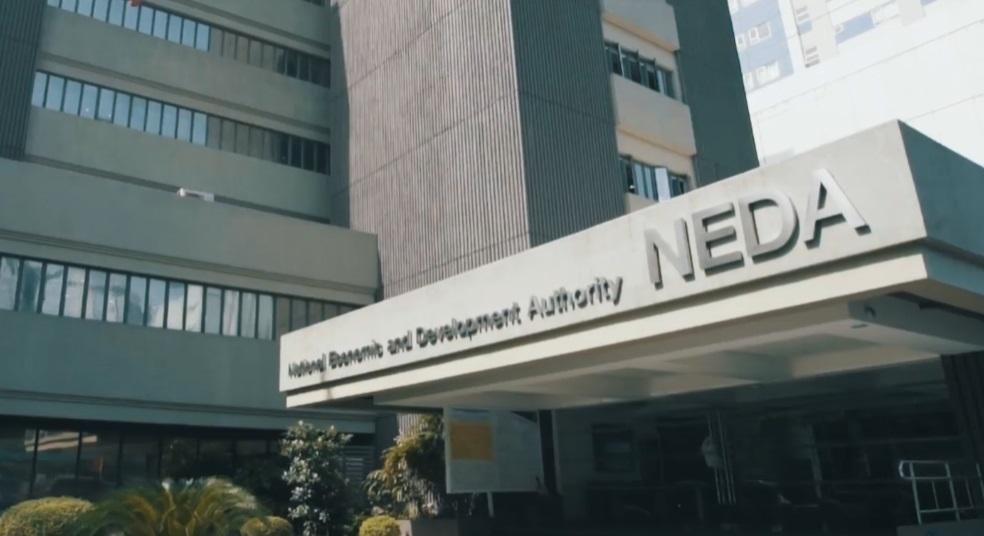E-bikes, e-motorcycles included in list of import tariff exempt e-vehicles —NEDA

The National Economic and Development Authority (NEDA) Board, chaired by President Ferdinand "Bongbong" Marcos Jr., has approved the expansion of coverage of an executive order that temporarily exempted from import tariff certain electric vehicles, parts, and components.
In a statement on Thursday, the socioeconomic planning agency said the NEDA Board, during its 16th meeting on May 15, approved the recommendations of the Committee on Tariff and Related Matters (CTRM) following the mandatory review of Executive Order (EO) No. 12 (s. 2023).
Under EO 12, various electric vehicles and their components received lower tariff rates from the previous 5 to 30% to now 0% import duty, with the exception of e-motorcycles as they are excluded from the tariff suspension and are still subject to 30% import duty.
The order was subjected to review one year after its implementation.
The agency said the NEDA Board has agreed to maintain the Most Favored Nation (MFN) rate at zero until 2028 on 34 tariff lines of battery electric vehicles currently covered under EO 12.
“It has also decided to expand the list of articles with reduced duty to include e-motorcycles and e-bicycles, and nickel metal hydride accumulators, and reduce the duty on these articles to zero until 2028,” the NEDA said.
The expansion in the coverage of EO 12 also includes other types of EVs, particularly battery e-tricycles and quadricycles; battery, hybrid EV (HEV) and plug-in hybrid EV (PHEV) jeepneys/buses; and HEV and PHEV cars and trucks; as well as completely knocked down (CKD) EVs for all types of vehicles.
The tariffs on these articles shall be reduced to zero until 2028, according to the NEDA.
"Executive Order No. 12 is designed to stimulate the electric vehicle (EV) market in the country, support the transition to emerging technologies, reduce our transport system’s reliance on fossil fuels, and reduce greenhouse gas emissions attributed to road transport," said NEDA Secretary Arsenio Balisacan, who also serves as the vice chairperson of the NEDA Board.
"By encouraging consumers to adopt EVs, we are promoting a cleaner, more resilient, and more environmentally friendly transportation alternative," he said.
Marcos further instructed the CTRM to conduct an annual review of the rates to ensure timeliness, applicability, and impact on the sectors concerned due to the modification in duties of EVs.
Other projects
Apart from expanding the EO 12's coverage, the NEDA Board also approved several key projects for implementation.
The board has green-lit the P2.75-billion Facility for Accelerating Studies for Infrastructure (FAST-Infra) Project "to drive robust infrastructure development aligned with the country's sustainable development goals."
FAST-Infra will initially focus on the transportation sector by providing fund support in formulating high quality transportation master plans and develop a robust pipeline of big-ticket transportation projects that would strengthen both national and regional connectivity, the NEDA said.
The NEDA Board has also given the thumbs up to the Infrastructure for Safer and Resilient Schools (ISRS) Project. This project is designed to address the urgent physical recovery needs of schools affected by natural disasters between 2019 and 2023.
The project also involves several interventions, including the repair, rehabilitation, retrofitting, and reconstruction for the recovery of damaged school facilities outside Metro Manila.
The NEDA said the project will strictly adhere to the country's latest multi-hazard resilient design provisions, strategically integrating vulnerability reduction measures into its engineering design to ensure enhanced performance of recovered infrastructure in the face of future hazard occurrences.
ISRS's project implementation is scheduled from 2024 to 2029 and is expected to benefit 13,101 classrooms across 1,282 schools nationwide, equivalent to 741,038 students.
The NEDA Board also approved the extension of the implementation period from January 1, 2024 to December 31, 2027 and loan validity from January 1, 2025 to December 31, 2027 for the Support to Parcelization of Lands for Individual Titling (SPLIT) Project.
SPLIT has a total project cost of P24.62 billion.
The official development assistance (ODA)-financed project, led by the Department of Agrarian Reform, aims to improve land tenure security, and stabilize the property rights of agrarian reform beneficiaries.
As of December 2023, a total of 78,657 e-titles covering 105,691 hectares have been registered to 85,665 agrarian reform beneficiaries, of which 54,698 registered e-titles covering 72,996 hectares have been distributed to 59,375 agrarian reform beneficiaries, according to the NEDA.
The NEDA Board also approved the extension of the implementation period of the already completed LRT Line 2 East Extension Project which added two new stations to the existing line, namely Marikina and Antipolo stations.
The project was completed in 2021 and had a total cost of P8.41 billion.
“While this project is already completed and is currently in full operation, this request for an extension in the implementation period intends to facilitate full disbursement to project contractors and consultants and ensure the quality of the project until the end of its defects liability period in December 2024,” the NEDA said.
Balisacan said the latest series of approvals by the NEDA Board marks a significant step towards the country’s social and economic transformation.
"As the nation moves forward, the decisions made today will play a crucial role in shaping a more prosperous and sustainable future for the Philippines," he said. —KBK, GMA Integrated News




